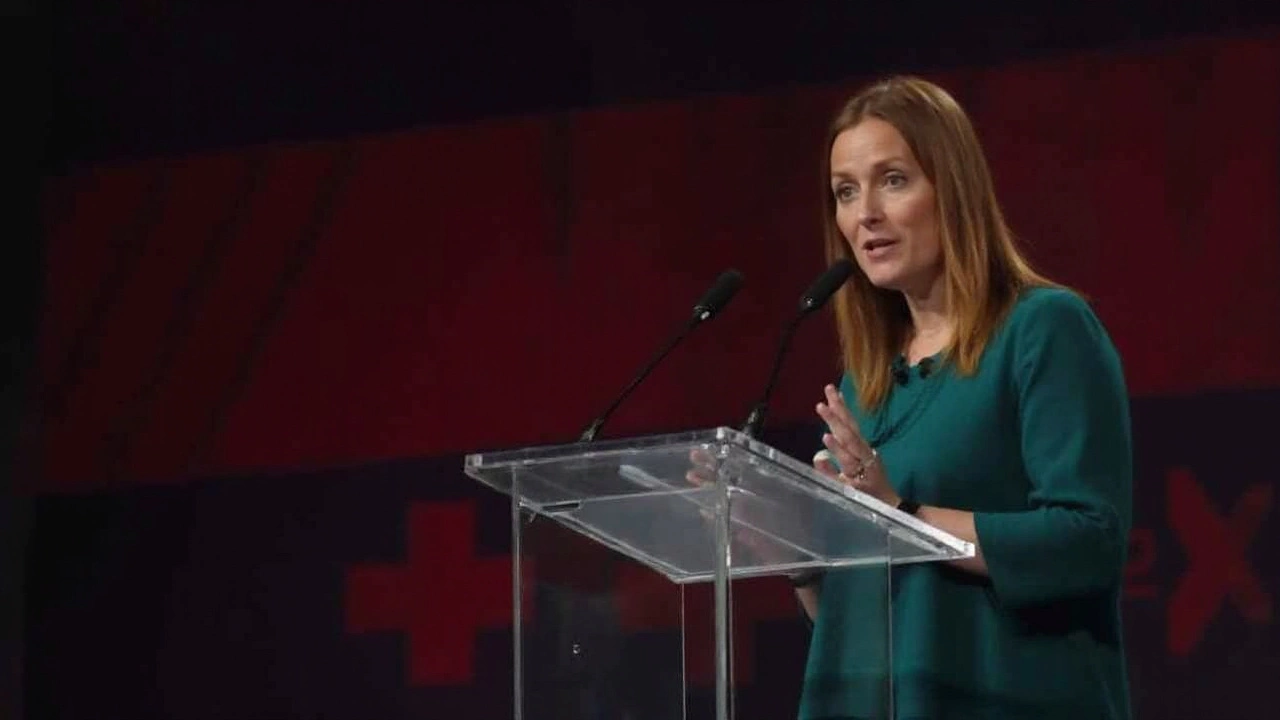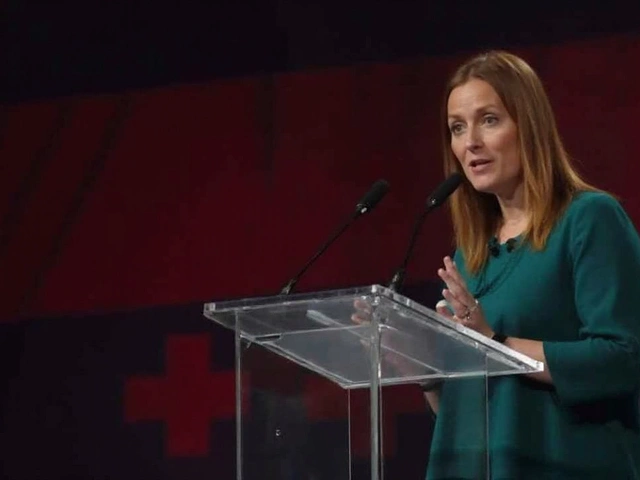From council estate to Westminster
A deputy prime minister stepping down over a tax bill is not an everyday headline. For Angela Rayner, it marked a sharp turn in a political story that started far from Westminster and cut against the usual path to power. Her career combined grit, speed, and controversy—and it ended, for now, with a ministerial resignation that will haunt a government barely a year into office.
Rayner was born in Stockport in 1980 and grew up on a council estate. She left Avondale School at 16, pregnant and without formal qualifications. That could have been the end of the story, but she insisted it was just the start. She trained in social care at Stockport College, then worked as a care worker for the local council—shift patterns, low pay, and the daily grind of a system stretched thin.
The move that changed everything came through Unison, the public services union. Rayner rose from member to elected senior official, learning how to organize, campaign, and negotiate. Union halls, not think tanks, were her political classroom. The Labour Party soon followed, and with it a platform that let her trade local fights for national ones.
In 2014, Labour selected her to contest Ashton-under-Lyne, a Greater Manchester seat that had backed Labour for generations. She won in 2015, arriving in Parliament with a profile that stood out: a working-class northerner with a union badge and a blunt way of speaking. Within a year she was in the Shadow Cabinet under Jeremy Corbyn, taking on roles that pushed her into the national conversation.
Between 2016 and 2020, she became one of the most visible figures on Labour’s soft left. She could talk policy but always rooted it in lived experience—care work, low pay, insecure housing. That voice carried her into the deputy leadership of the Labour Party in March 2020, a big job at a turning point for Labour after two electoral defeats. Keir Starmer took the leadership; Rayner took the deputy role, and their partnership—sometimes warm, sometimes wary—became a defining feature of opposition politics.
When Labour returned to power in 2024, Starmer made Rayner Deputy Prime Minister and Secretary of State for Housing, Communities and Local Government. In formal terms, the deputy title doesn’t carry automatic powers. In practice, it made her the government’s second-in-command and the face of a housing mission that Labour had sold as central to growth, fairness, and rebuilding the country.
Her appointment also had symbolic weight. She became only the second woman to serve as the UK’s Deputy Prime Minister, after Thérèse Coffey. For supporters, it was proof that politics didn’t have to be a closed shop for people with the “right” CV. For critics, her fast rise was matched by a habit of bruising political fights and a stubborn streak that didn’t always help her inside government.
Rayner used the Housing and Communities brief to push priorities Labour had trailed in opposition: a bigger building programme, planning reform to speed up approvals, stronger renters’ protections, and more power for local leaders. She championed council housebuilding and floated reforms to tilt the system toward delivery—less red tape on brownfield, tougher targets for local plans, and a clearer national map of where new homes would go. She argued that housing policy had to be both pro-supply and pro-tenant, otherwise prices would keep marching out of reach.
That agenda was ambitious. It was also bigger than one department. Planning runs through the Treasury, Transport, and Energy; renters’ rights cross paths with Justice and the Home Office; and local government finance tugs at every part of Whitehall. Even with the deputy PM title, turning that agenda into law was always going to be heavy lifting.

The controversies and the resignation
Alongside the policy push sat a slow-burn story about her personal finances. The first flare-up focused on an ex-council flat she bought under the right-to-buy scheme in 2007, before she entered Parliament. She later sold it at a profit. Questions were raised about whether she should have paid Capital Gains Tax—especially after her 2010 marriage to a fellow Unison official—and whether the property qualified as her primary residence throughout.
Rayner’s position was clear: it was her only home at the time of sale, and she didn’t owe Capital Gains Tax. She also said she hadn’t used professional accountants back then. The Conservative attack line was equally simple: if she had benefited from tax reliefs she wasn’t due, what did that say about standards in public life?
The row escalated when Conservative peer Lord Ashcroft published an unauthorised biography that pressed on the tax storyline. Soon after, Conservative deputy chairman James Daly asked Greater Manchester Police to investigate. Police looked and decided no offence had been committed. Labour called the claims a smear, and Keir Starmer publicly defended his deputy.
What ultimately brought Rayner down, though, wasn’t capital gains tax. It was stamp duty—specifically, a finding that she underpaid it on a property purchase, and that the way the matter was handled breached the Ministerial Code. A report published on 5 September 2025 concluded she had broken the code in relation to the underpayment. The conclusion was enough to end her tenure in government.
Here’s why that matters. The Ministerial Code is not criminal law; it’s a rulebook for integrity in office. It expects ministers to comply with the law, be honest and transparent, avoid conflicts of interest, and correct errors promptly. A breach doesn’t mean a crime occurred. It does mean the standards expected of ministers weren’t met. In practice, breaches often trigger resignations because they go to the heart of trust in government.
Stamp Duty Land Tax is due on most property purchases in England and Northern Ireland. Underpayments can occur for a few reasons: a relief wrongly claimed, an error in the paperwork, or a misreading of the rules, which can be complex around second homes, additional dwellings, or mixed-use properties. The report’s conclusion—and the fact it found a code breach—suggests the issue was less about a technical slip and more about how it was dealt with, disclosed, and corrected.
Rayner resigned from both her roles: Deputy Prime Minister and Secretary of State for Housing, Communities and Local Government. She did not, at that moment, stand down as an MP. Her long-term party position, including the deputy leadership of Labour, is separate from government office and sits with the party’s own rules and processes. The immediate result, however, is simple: a big vacancy in a big domestic policy department, and a symbolic void at the top of government.
The timing made the fall sting. In December 2024, she had appeared on the BBC 100 Women list—global recognition for influence and visibility. Less than a year later, the standards rulebook ended her government career. The contrast will fuel debate about how modern politics treats class, gender, and power, and whether a working-class backstory wins forgiveness or invites more scrutiny.
The political fallout is already spreading. Conservatives will say Labour preached high standards and then tripped over its own. They will link the stamp duty breach to the earlier capital gains dispute, even though police found no offence in that case. Labour figures who backed Rayner will insist the resignation proves the standards system works—that when the code calls a breach, ministers step aside, no matter who they are.
Inside government, the practical question is what happens to the housing and local government agenda. Planning reform is slow, contentious, and always one crunch vote away from stalling. Renters’ protections are popular with tenants but can trigger a backlash from landlords, especially if repossession grounds tighten. Council budgets, still under strain, were expecting a clearer long-term settlement. All of that needs a firm hand at the wheel.
Then there’s the deputy prime ministership. The title can be influential or largely ceremonial depending on how a prime minister uses it. In this government, it gave Rayner clout across departments. Replacing her means choosing not just a person but a way of running the machine—centralised in No. 10, or balanced with a deputy who can roam and fix problems.
Supporters of Rayner will argue she connected Labour’s housing push to the people most affected: renters facing spiralling costs, first-time buyers locked out by deposits, families waiting on social housing lists that barely move. They’ll say she brought urgency, and that urgency mattered. Critics will counter that soundbites can’t rewrite planning law, and building more homes—especially affordable ones—takes time, political capital, and steady leadership not constantly battling headlines.
There is also a cold lesson here about politics and personal finance. Westminster has seen rows over expenses, tax statuses, and declarations before. Each case is different, but each one reminds ministers that technical compliance is not enough. The expectations are higher, and the window for correcting mistakes is shorter when you sit at the top table.
Rayner’s story won’t vanish with one resignation letter. Her journey—from teenage mother to union organiser to the second-highest rung of government—shifted perceptions about who can lead. Her fall will shape arguments about how those leaders should behave, how fast they should be forgiven, and whether the system is even-handed when it judges them.
For Labour, the choices are immediate. Keep the housing agenda moving at pace or slow it to reset? Elevate a safe pair of hands or choose a reformer who will take heat on planning and rental law? Give more authority to metro mayors and councils to prove that delivery isn’t only a Westminster project? The answers will define whether the government’s most tangible promise—more homes people can actually afford—lands in people’s lives.
For Rayner, the next steps are personal and political. She still has a base in Ashton-under-Lyne and deep roots in the labour movement. Some will urge a return to the back benches to fight on policy; others will say the standards breach makes a comeback near-impossible in this Parliament. British politics has a memory for comebacks—but also a habit of closing doors.
It’s worth pausing on how fast this all happened. From 2015 to 2025 is a decade. In that time, Rayner went from new MP to deputy leader of her party to deputy prime minister—and then out of government. That pace says something about her drive and about the volatility of modern politics: rapid ascents, relentless scrutiny, thin margins for error.
And it speaks to the tension at the heart of the housing brief: huge expectations colliding with structural obstacles. Planning systems that take years to change. Supply chains stretched by labour shortages and costs. Local opposition to density that clashes with national targets. A minister can set direction. Delivery depends on institutions, markets, and trust that the rules won’t change mid-project.
Trust is the keyword—inside Whitehall, in Parliament, and among voters. The Ministerial Code is one of the tools used to protect it. Breaching the code doesn’t mean a minister is beyond redemption; it means the line was crossed while in office. Resignation is how government tries to reset.
Rayner’s allies will keep pushing the case that class still shapes whose mistakes are magnified. Her critics will keep saying that standards either apply or they don’t. Both instincts will run through the reaction to her departure. Meanwhile, councils still need funding settlements, renters still wait for stronger protections, and first-time buyers still chase deposits that keep moving out of reach.
Below is a snapshot of the path that led to this week’s decision.
- 1980: Born in Stockport.
- Left school at 16, pregnant and without formal qualifications; later trained in social care and worked as a care worker.
- Rose through Unison to become an elected senior official; joined the Labour Party.
- 2014: Selected as Labour’s candidate for Ashton-under-Lyne.
- 2015: Elected to Parliament.
- 2016–2020: Held multiple Shadow Cabinet roles under Jeremy Corbyn.
- March 2020: Elected Deputy Leader of the Labour Party.
- 2007 property purchase under right-to-buy; later sold at a profit; capital gains questions arise years after.
- 2010: Married; questions focus on tax status during and after marriage; police later find no offence.
- 2024: Labour wins the general election; Rayner becomes Deputy Prime Minister and Housing, Communities and Local Government Secretary.
- December 2024: Named on BBC 100 Women list.
- September 2025: Report finds she breached the Ministerial Code over underpaid stamp duty; she resigns from government.
The next Housing Secretary will inherit a to-do list that touches almost every household: rents, mortgages, local services, and the shape of towns and cities. They will also inherit a cautionary tale about politics and paperwork. For a government that promised to rebuild trust as well as homes, both parts of that job just got harder.


